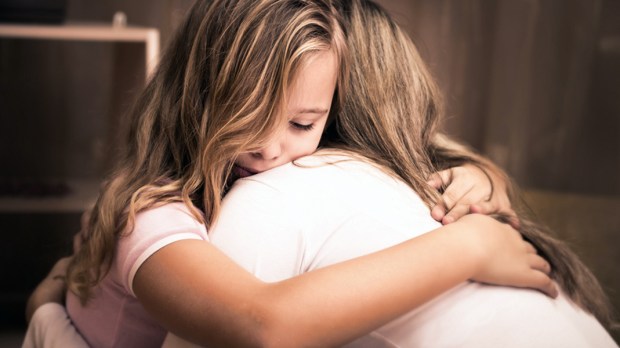Lenten Campaign 2025
This content is free of charge, as are all our articles.
Support us with a donation that is tax-deductible and enable us to continue to reach millions of readers.
In second grade, my oldest child started saying she hated school. This was a sea change for us — she had always loved everything about school, from her friends to her homework. But this year she had a teacher she didn’t click with. We weren’t sure what the problem was so we set up multiple parent-teacher conferences. When things didn’t improve, we finally told her that sometimes she would have to suffer through a rough year to get to a better one.
The next year brought a new teacher, but she still didn’t love school. Over the course of the year, it became increasingly clear that the problem wasn’t the teacher, nor was it our daughter. It was a class bully. Sienna didn’t love school again until we started her somewhere new.
I thought about that when I read this article at Today’s Parent, about warning signs that your child could have a mental health issue. The number one thing they advised to look out for was mood changes and swings:
A child in the dumps not just on a bad day but day after day. Maybe your once-enthusiastic young soccer player no longer wants to go to practice. Or a kid who once looked forward to sleepovers no longer shows interest in having friends over.
I did wonder if Sienna was suffering from anxiety or depression, particularly when we were having trouble figuring out exactly why she suddenly hated school. She would say things like, “The kids are mean to me,” and I would brush it off, because kids are mean to each other. But part of school is learning to deal with it and roll with the punches, right?
Not always. For a long time — too long, in fact — I tried to find the root of the problem in my daughter instead of actually listening to her when she told me what the problem was. When I finally started to understand how extensive and nefarious bullying was at her school, I was horrified. When I saw how the adults charged with protecting my daughter failed to acknowledge and act on the problem, instead suggesting (much like I had!) that the problem was with her, I was furious.
Bullying is a much more serious problem in schools than it used to be. I’m not talking about schoolyard taunts and childish spats, I’m talking about extensive campaigns of torture designed by a group of students and focused on one single target, usually a kid without friends to defend him or her. This kind of bullying has no limits, either, because with social media connectivity the school day doesn’t end. My daughter was bullied during the summer on my Snapchat account on my phone that she had been using to send goofy pictures to her grandmother. But the school bullies found her and sent dozens of nasty and malicious snaps before I realized what was happening and deleted the app.
Bullying has profound effects on the mental, emotional, and physical health of kids. All of the signs listed in the article could indeed be signs of organic mental health issues, but they could also be signs of mental health deterioration because of bullying. If your kid is telling you that other kids are being mean, don’t make the mistake I did and assume that isn’t the real problem. It could be, and ignoring it could have profound repercussions for your child.
Above all, listen to your kids. Talk to them, get to know them, be familiar with the kids they hang out with and the ways they communicate outside of school. Don’t assume that teachers and administrators will protect them from bullies, because that isn’t always the case. Remember that you are the first line of defense for your child, whether they’re struggling with bullies or anxiety or just a plain old bad day. You can’t (and shouldn’t) fix every problem, but good communication will help you see what the problems are and what it will take to help your kids solve them, with or without your help.
Read more:
Do Anti-Bullying Programs Lead to More Bullying?

